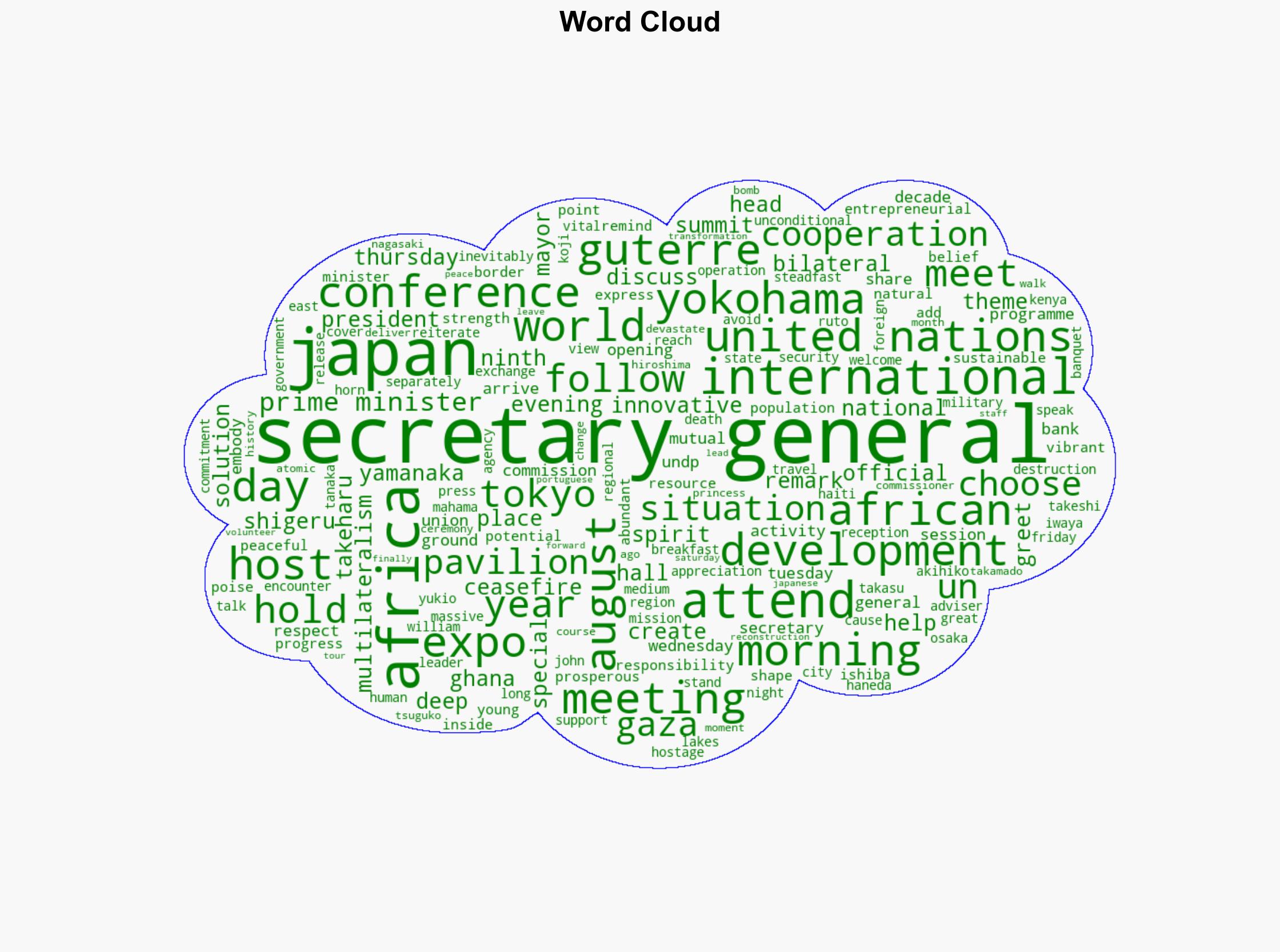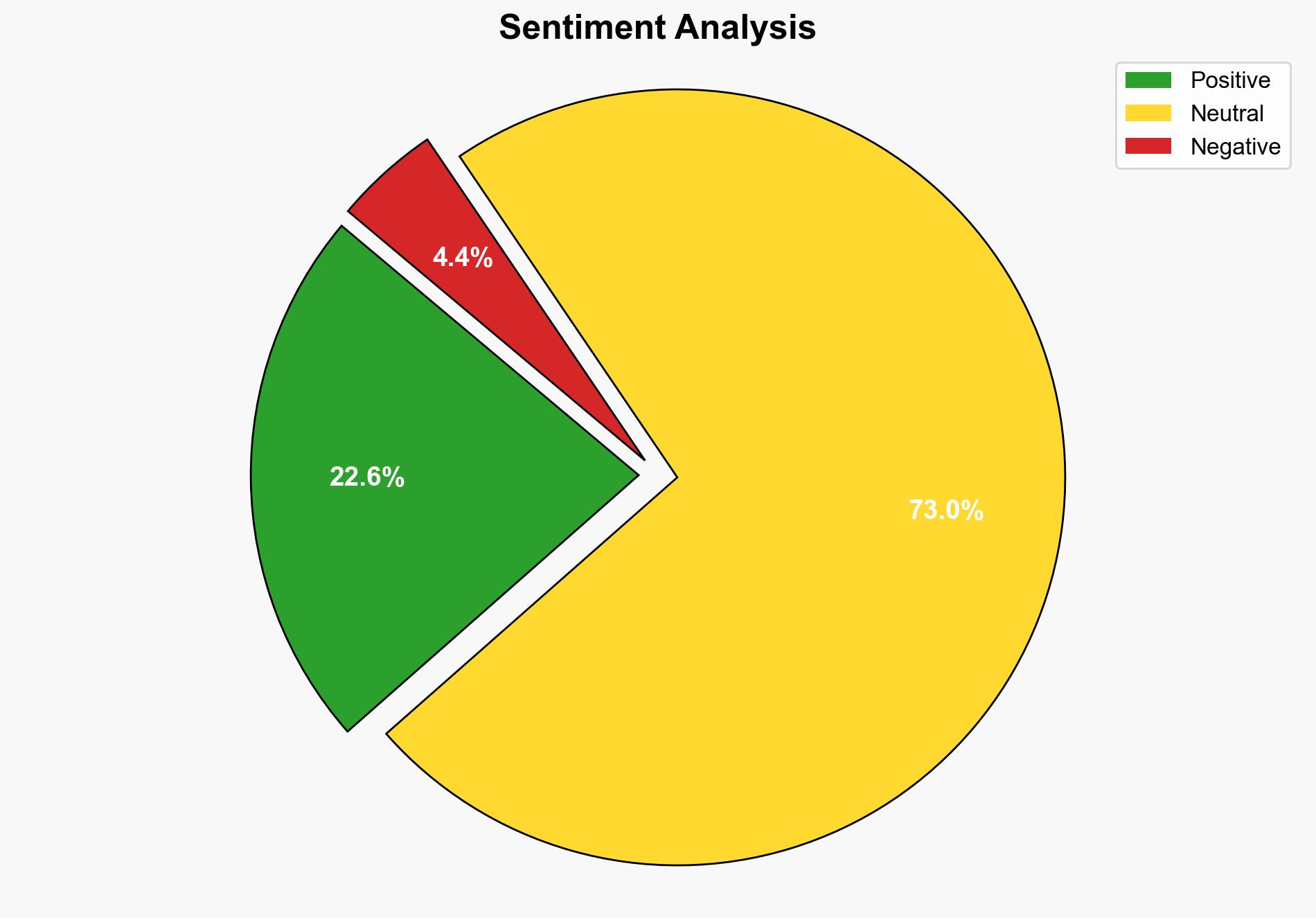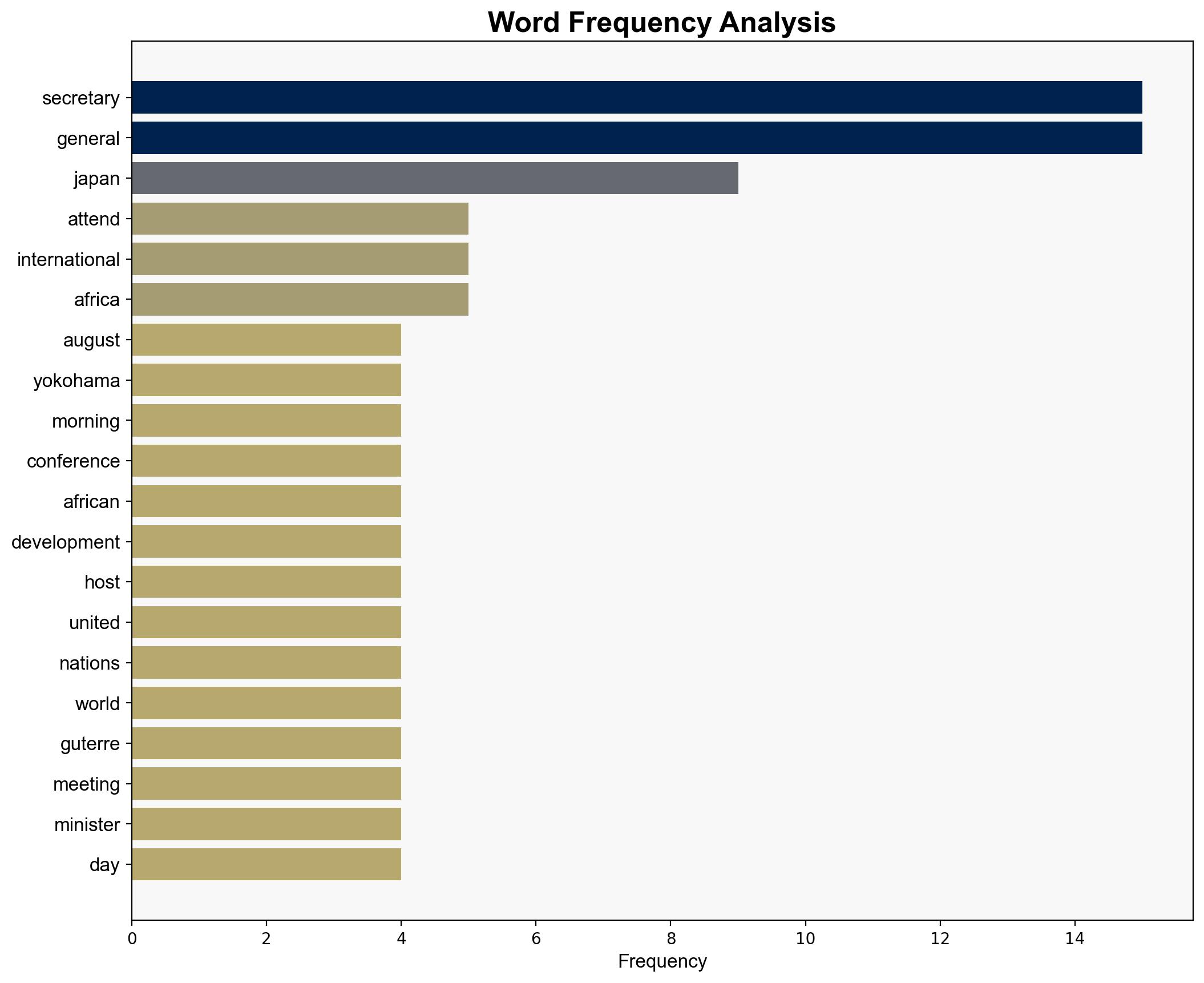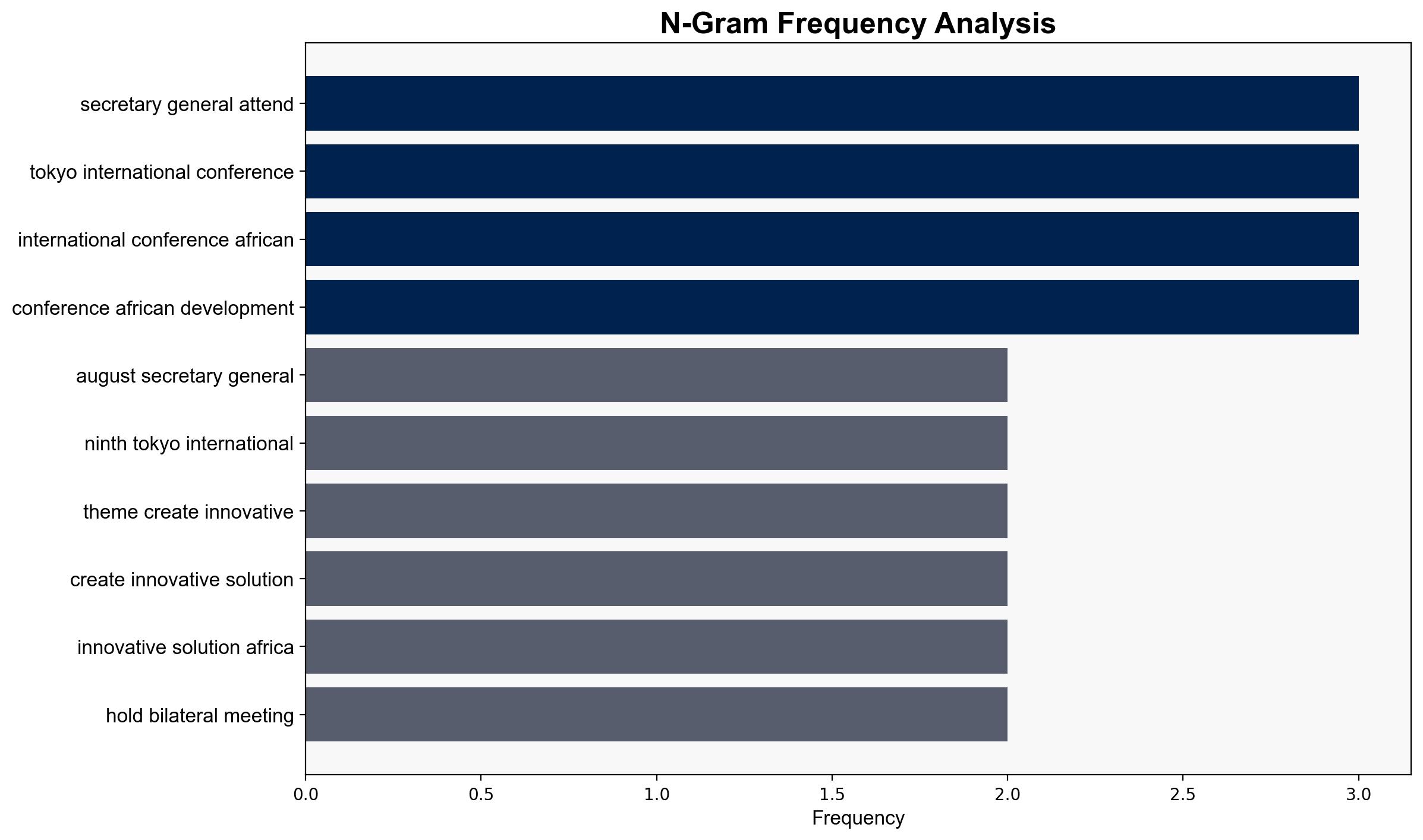Activities of Secretary-General in Japan 19-23 August – UN News
Published on: 2025-09-05
Intelligence Report: Activities of Secretary-General in Japan 19-23 August – UN News
1. BLUF (Bottom Line Up Front)
The Secretary-General’s visit to Japan, centered around the Tokyo International Conference on African Development, underscores a strategic emphasis on multilateralism and Africa’s development. The most supported hypothesis suggests this visit aims to strengthen international cooperation and address regional conflicts, particularly in Africa. Confidence level: Moderate. Recommended action: Enhance diplomatic engagement with African nations and Japan to support multilateral initiatives.
2. Competing Hypotheses
Hypothesis 1: The Secretary-General’s visit primarily aims to bolster multilateral ties and promote peace and development in Africa, leveraging Japan’s commitment to international cooperation.
Hypothesis 2: The visit is a strategic maneuver to address specific geopolitical tensions, such as the situation in Gaza and regional conflicts in Africa, using the platform to gather international support.
Using ACH 2.0, Hypothesis 1 is better supported due to the focus on multilateralism and development themes, as evidenced by the conference’s agenda and bilateral meetings emphasizing cooperation.
3. Key Assumptions and Red Flags
Assumptions:
– Japan’s commitment to multilateralism is unwavering.
– Africa’s development is a priority for the UN and Japan.
Red Flags:
– Potential over-reliance on Japan’s support without considering domestic political changes.
– Lack of specific details on outcomes from bilateral meetings, indicating possible gaps in transparency.
4. Implications and Strategic Risks
The emphasis on Africa’s development could lead to increased economic partnerships and stability in the region. However, failure to address immediate geopolitical tensions, such as in Gaza, could undermine broader peace efforts. The risk of regional instability in Africa remains if multilateral efforts do not translate into actionable outcomes.
5. Recommendations and Outlook
- Strengthen diplomatic channels with African countries and Japan to ensure sustained support for multilateral initiatives.
- Monitor Japan’s domestic political climate for shifts that could affect its international commitments.
- Scenario Projections:
- Best Case: Enhanced cooperation leads to significant progress in African development and regional stability.
- Worst Case: Geopolitical tensions overshadow development efforts, leading to stalled progress.
- Most Likely: Incremental progress in multilateral initiatives with ongoing challenges in conflict resolution.
6. Key Individuals and Entities
– Secretary-General
– Shigeru Ishiba
– Akihiko Tanaka
– Yukio Takasu
– John Mahama
– William Ruto
– Takeharu Yamanaka
– Koji Haneda
– Princess Tsuguko Takamado
7. Thematic Tags
national security threats, multilateral cooperation, African development, regional stability





